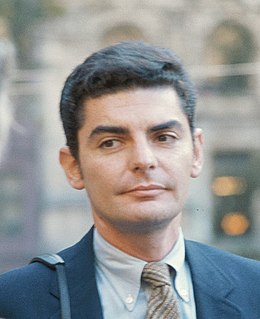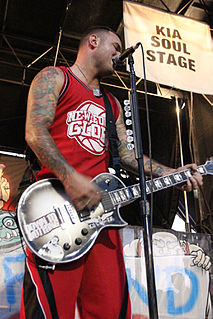A Quote by Tom Brokaw
Because I lived in construction towns, we had a lot of workers who came from the South. They were all white, and, sorry to say, a number of them were pretty redneck.
Related Quotes
At the beginning of the 20th century, before the migration began, 90 percent of all African-Americans were living in the South. By the end of the Great Migration, nearly half of them were living outside the South in the great cities of the North and West. So when this migration began, you had a really small number of people who were living in the North and they were surviving as porters or domestics or preachers - some had risen to levels of professional jobs - but they were, in some ways, protected because they were so small.
Imperialism has now reached a degree of almost scientific perfection. It uses White workers to conquer the non-white workers of The Colonies. Then, it hurls the non-white workers of one colony against those of another non-white colony. Finally, it relies on the Colored workers of the colonies to rule the White workers. Recently, White French soldiers near mutiny in the occupied Ruhr of Germany, were surrounded by French African soldiers, and colored native light-infantry were sent against White German strikers.
Those who came to the United States didn't realize they were white until they got here. They were told they were white. They had to learn they were white. An Irish peasant coming from British imperial abuse in Ireland during the potato famine in the 1840s, arrives in the United States. You ask him or her what they are. They say, "I am Irish." No, you're white. "What do you mean, I am white?" And they point me out. "Oh, I see what you mean. This is a strange land."
The newspaper stories were like dreams to us, bad dreams dreamt by others. How awful, we would say, and they were, but they were awful without being believable. They were too melodramatic, they had a dimension that was not the dimension of our lives. We were the people who were not in the papers. We lived in the blank white spaces at the edges of print. It gave us more freedom. We lived in the gaps between the stories.
I've found that when I was young, all the pretty girls at school got all the dates and went to all the big parties and everything because they were pretty. They never bothered to develop anything. And as they aged, their prettiness faded and they were left as middle-aged women who were very, very unhappy and disappointed. But I can't feel sorry for them because that was their own doing.
I never, with my eyes, saw the mistreatment of any black person. Not once. Where we lived was all farmers. The blacks worked for the farmers. I hoed cotton with them. I'm with the blacks, because we're white trash. We're going across the field.... They're singing and happy. I never heard one of them, one black person, say, I tell you what: These doggone white people - not a word!... Pre-entitlement, pre-welfare, you say: Were they happy? They were godly; they were happy; no one was singing the blues.
I was writing - at least beginning to write Boston Boy and there were a lot of holes in my so-called research. I didn't know the towns my mother and father came from in Russia. I didn't know the name of the clothing store I went to work for when I was 11 years old. I didn't know a lot of things. So I called for my FBI files, not expecting to have that stuff there, but I wanted to know what they had on me.But they did have the towns my mother and father lived in in Russia. They had the grocery store I worked in when I was 11 years old.
I had been hearing on-the-ground buzz that white folks were moving to places like Bend, Oregon, and Coeur d'Alene, Idaho, and St. George, Utah. That led me to discover through census data that these towns were already extremely white and they were becoming, in most cases, even whiter. Statistics could only tell me so much; in order to get to the spirit and essence of it, I had to immerse myself.
I'm sure you're gonna be taught, if you haven't already, that the people that were here, the Native Americans were beautiful, they were wonderful, they were at one with nature, and these evil white Europeans like Columbus came in and killed them and took them, imprisoned them, stole what was theirs, took it for ourselves.
These events are swirling around them. In the white community, people felt like they had no control over their neighborhoods, their destiny. In the black community, centuries of government and economic forces were pushing on them. I went in with a kind of arrogance, maybe, that came from living in a very intellectual family, and I left knowing that there was a lot about the way people lived that I didn't know about.
I lived in a little working-class town that had no black neighborhoods at all - one high school. We all played together. Everybody was either somebody from the South or an immigrant from East Europe or from Mexico. And there was one church, and there were four elementary schools. And we were all, pretty much until the end of the war, very, very poor.

































